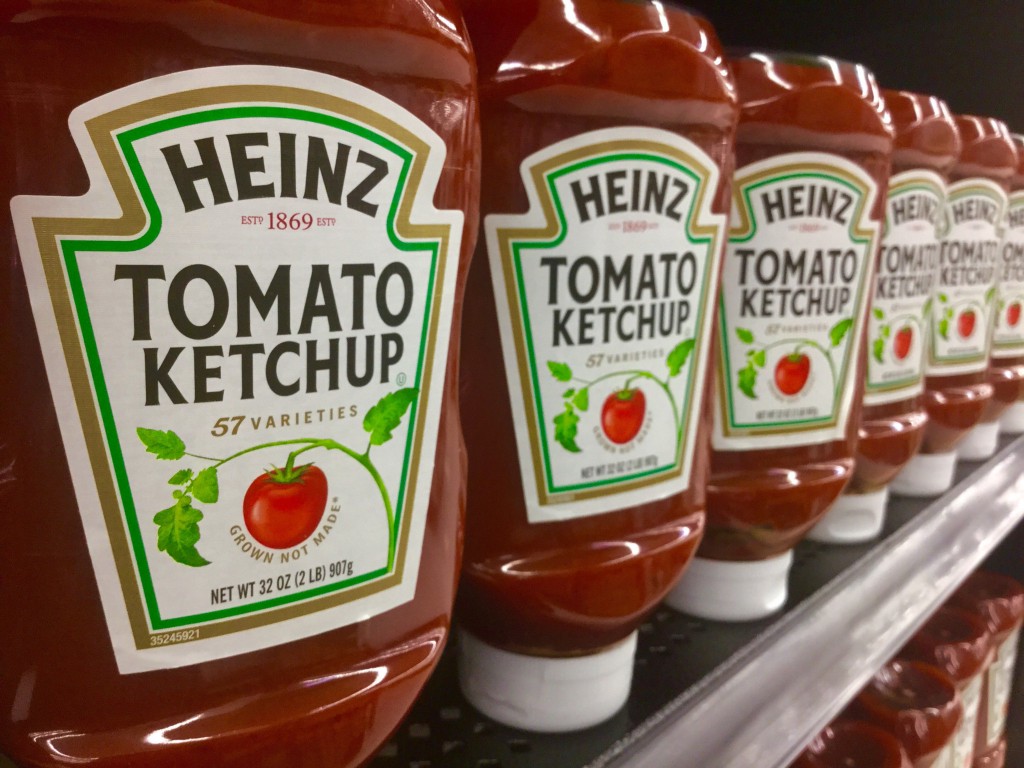Ketchup is the Working Class Hero of the Food World
By adding ketchup, you can raise the dignity of that cheap burger on that cheap bun.

I have, in the past, been guilty of condiment snobbery. To this day, I commit the cardinal sin of preferring mayonnaise — not ketchup — on my chips (or ‘fries’). But, even when I’ve been letting the bottle of Heinz sit forlorn, crusting around the cap, while I used home-made chutney, I’ve never hated or looked down on ketchup.
Meredith Heil, writing for Thrillist, seems to disagree. Her argument, basically, is that ketchup has no nutritional value and can — somehow — only detract from the tastiness of whatever food you happen to be slathering it on. She describes it as a ‘garbage condiment’ — as opposed, I wonder, to what?
Ketchup Is a Garbage Condiment and You’re a Moron if You Use it
Heil even admits that she’s ‘not saying mayo and mustard are the picture of health’. And, after all, all of these things are condiments. If I was going to sit down and eat a bowl of ketchup, I might be more concerned with its nutritional value. Since it’s just a flavour enhancer for something else, however, I’m not going to worry too much about it.
For me, though, the fundamental difference of opinion I come into with Heil is summed up in one sentence from her piece. “Slather ketchup on a cheeseburger,” she says, “and it’s practically impossible to spot the difference between Daniel Boulud’s $140 Royale Double Truffle Burger and a day-old White Castle Slider.”
Surely, though, that’s the point of ketchup? Surely that’s the point of any condiment! If the food itself is so expensive, so high-quality and — above all — so tasty that it doesn’t need ketchup, then it doesn’t need ketchup. If, however, you’re making do with cheap food, ketchup is a great elevator.
I’m not about to make a sweeping statement about ketchup and democracy, but I easily could. By adding ketchup, you can raise the dignity of that cheap burger on that cheap bun, and enjoy it just as much — perhaps more — than something more expensive.
Heil’s attitude, I think, smacks of food elitism. She looks down her nose at people who ask for their steak well done, as though that were anything but a personal choice. As though people who are used to low quality meat aren’t more likely to be making that choice than the moneyed elites who can afford high-quality beef.
Food has a lot to do with status. We mock people who eat at McDonald’s, even if we ourselves occasionally do so. We value expensive, high-status foods, and look down on those who eat cheaper everyday items. Why? Because we live in a culture of food snobbery.
For Heil, and thousands of people like her, it seems to be less about enjoying food and more about enjoying the status that comes with eating well. I’m sure the ‘double truffle burger’ she links is lovely — but, to my mind, there’s only so much better it can be than something that costs less than a tenth as much. I refuse to believe in the existence of any single item of food worth $140.
Ketchup, and condiments like it, are anathema to food snobbery, because they “squash” flavours with “indiscriminate brutality”. Of course, they also bring mediocre or even bad food to life. With ketchup, that $140 burger tastes just as good as a $1 burger — and isn’t that a point in favour of paying the one dollar, slavering your burger in ketchup, and saving yourself $139?
Maybe I am going to make that sweeping point about ketchup and democracy, after all. Ketchup is a slap in the face of elitism, like Heil’s. Ketchup is a way for the masses, for the working class, to enjoy their food — their cheaply produced, mass market food — just as much as hipsters enjoy their fancified, expensive fare.
Now, I can see why that might rankle the hipsters. But for the rest of us? Ketchup is a lifesaver. It’s “indiscriminate”, as Heil says; ketchup doesn’t discriminate. It doesn’t matter who you are or what you can afford to pay for your food, you can enjoy you meal thanks to ketchup. I think that’s a beautiful thing.
Support The Billfold
The Billfold continues to exist thanks to support from our readers. Help us continue to do our work by making a monthly pledge on Patreon or a one-time-only contribution through PayPal.
Comments